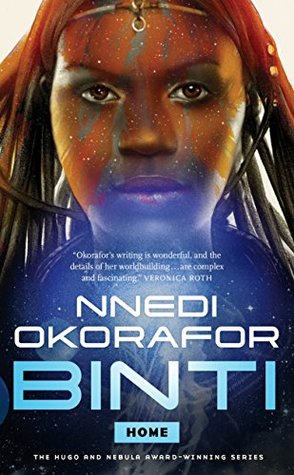More on this book
Community
Kindle Notes & Highlights
In some ways, Himba and Khoush were like night and day, but in matters of girlhood and womanhood and control, we were the same.
“When you face your deepest fears, when you are ready,” she’d said. “Don’t turn away. Stand tall, endure, face them. If you get through it, they will never harm you again.”
“I will wash this off soon,” it said. “It’s not good to feel this pleased with life.”
Nothing was asked of Okwu and Okwu was pleased, preferring to menacingly loom in the background behind me. Okwu was happiest around human beings when it was menacingly looming.
The Meduse worshipped water as a god, for they believed they came from it. This was the root of the war between the Meduse and the Khoush, though the details had long been blasted away by violence and death, and then angry, most likely incorrect, tales of heroism or cowardice depending on the teller.
As I sat there, watching Okwu dance with its god, I thought about how strange it was that for me to swim in water was taboo and for Okwu such a taboo was itself a taboo. I remember thinking, The gods are many things.
Dancing was like moving my body in the way that I saw numbers and equations move when I treed. When I danced, I could manifest mathematical current within me, harmonizing it with my muscles, skin, sinew, and bones.
How different my life would have been if my parents had just let me dance.
When I was five, I had asked my mother what it was like to give birth. She smiled and said that giving birth was the act of stepping back and letting your body take over. That childbirth was only one of thousands of things the body could do without the spirit.


